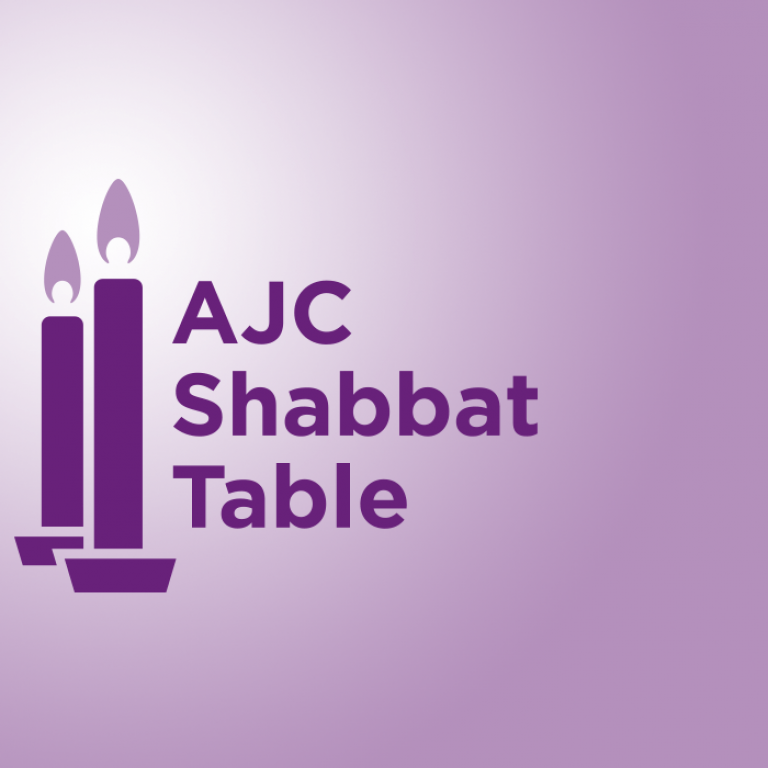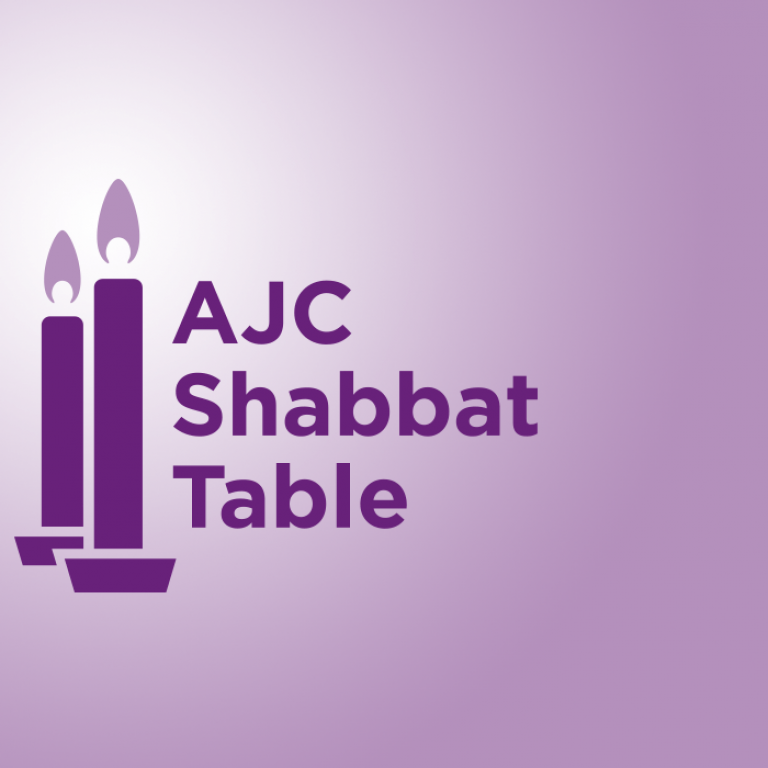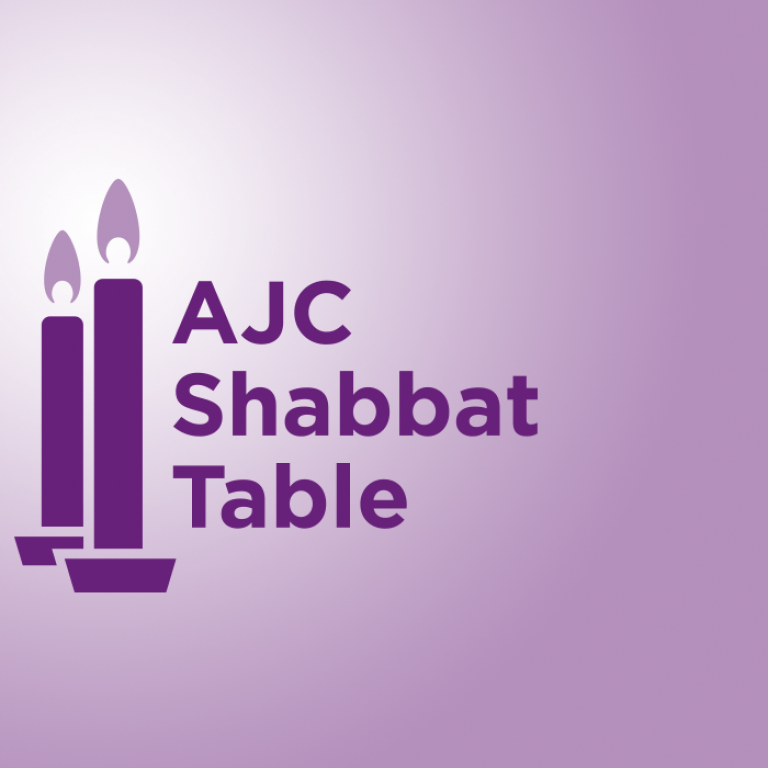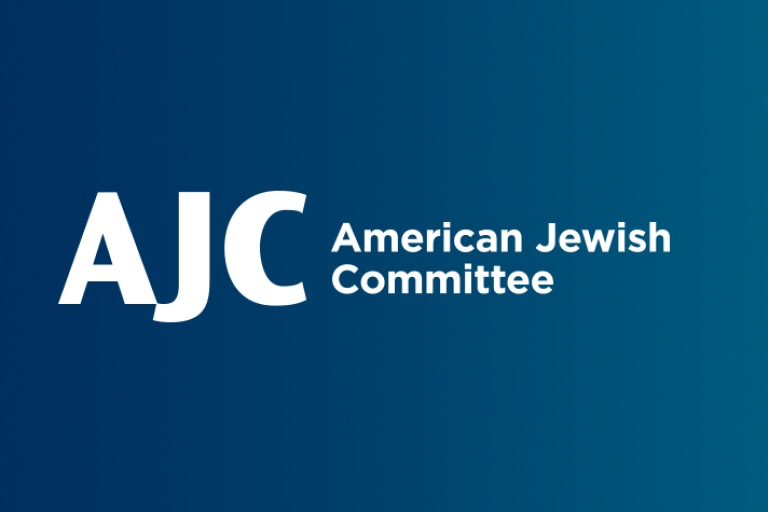October 23, 2020
We want to hear from you!
Now that we’ve been publishing Shabbat Table for about three months, it’s time to hear from our readers about what you think of it! We’d be so grateful if you took two minutes (we promise it won’t take longer than that) to fill out a short survey. Click here to fill out the survey. THANK YOU!
This Shabbat: Parshat Noach
The story of Noah and the flood feels perhaps a bit too resonant for our times. A natural disaster destroying humanity? Check! So what lessons can we in 2020, amid a worldwide pandemic, glean from this Biblical story of human destruction and rebirth? Turns out that perhaps the most important lesson can be gleaned from the very first verse of the parsha: “These are the generations of Noah. Noah was a righteous man in his generation; Noah walked with God.” The rabbis point out that Noah's name appears three times in this verse. They teach that the three times the name appears refer to Noah before the flood, Noah during the flood, and Noah after the flood. The experience of the flood was so life-altering that Noah was a different person before, during and afterward. Like Noah, we too are in many ways different people than we were back in February before the pandemic. Our lives are simpler, more home and family based. We are more anxious and fearful. Many of us are grieving the loss of someone we loved to the virus. Many of us are struggling with economic stress. Hopefully, by the time we read the story of Noah again next fall, we will be emerging on the other side of this crisis. And our post-Covid selves will be different yet again. Perhaps we can learn from Noah to both accept that this experience has changed us and, as we look ahead to a post-Covid world, to consider what changes should be permanent, and what changes we will need to overcome in order to forge ahead.
This Week in Jewish History
October 26, 1939 - The Dominican Republic becomes the first country to accept Jewish refugees from Nazi Germany
In the years after Hitler and the Nazi party took power in Germany in 1933, they made life increasingly impossible for German Jews in order to force them to leave. By 1938,150,000 of Germany’s 565,000 Jews had already left, but in March of that year, Germany annexed Austria, bringing another almost 200,000 Jews into Hitler’s jurisdiction. Although more and more Jews under German rule sought to emigrate, they faced a near insurmountable challenge - no country wanted to take them in. The United States, the most sought-after destination, had passed strict immigration quotas in 1924 that all but banned immigration. In the summer of 1938, American President Franklin Roosevelt called for an international conference to address the refugee crisis caused by Nazi rule. The ensuing conference, which became known as the Evian Conference after the location in which it took place, brought together delegates from 32 countries for nine days to discuss what could be done to help the refugees. While all the delegates expressed their sympathy, the only one that actually agreed to accept any refugees was the small Carribean island nation of the Dominican Republic. The German government reacted with glee to the goings on at Evian, noting that all the nations of the world were quick to criticize their treatment of Jews, but none of them wanted the Jews in their countries either. The Dominican Republic had its reasons for accepting Jewish refugees: President Rafael Trujillo wanted to rehabilitate his tarnished reputation in the wake of his government’s massacre of Black Haitians the previous year. And, he was also eager to bring white wealth into his poor nation. Nonetheless, despite reasons that could be seen as craven, the Dominican Republic still stepped up where no other nation would. On October 26, 1939, Trujillo announced that his country would accept 500 refugee families, waiving their entry fees. In the end, the Dominican Republic only admitted 645 Jews between 1938-1945, hardly a significant number. Trujillo’s government did, however, issue 5,000 visas to Jewish refugees, which allowed them to escape Nazi Germany. The behavior of all the other world leaders at Evian is a shameful stain on their legacies.
October 27, 1978 - Menachem Begin and Anwar el-Sadat win the Nobel Peace Prize
From the moment Israel was born in 1948, Egypt did everything in its power to destroy it. Immediately after Israel declared its independence, Egypt joined with other Arab states in attacking the new state. In 1956 Egypt nationalized the Suez Canal and closed it to Israeli shipping, choking off a critical lifeline for import and export. In 1967, Egypt attacked Israel in the Six Day War and, after its humiliating defeat, attacked Israel again in 1973, beginning the Yom Kippur War. While that war ended with an Israeli victory, it also brought terrible losses for Israel, a sobering reminder that Arab armies were still formidable foes. By the mid-1970s, both nations were well aware of the deep costs of their constant state of war. In 1977, after a series of back-channel communications with Israel, Egyptian President Anwar el-Sadat gave an unprecedented speech in the Egyptian parliament, declaring “I am ready to go to the ends of the earth and even to their [Israel’s] home, to the Knesset itself, to argue with them, in order to prevent one Egyptian soldier from being wounded.” Almost immediately upon hearing of Sadat’s speech, Begin took to the radio to broadcast an invitation to Sadat to visit Jerusalem. Much to the amazement of Egyptians and Israelis alike, eight days later, Sadat’s plane landed in Ben Gurion airport. With flags of both nations waving and music playing, he was greeted on the tarmac by Begin and other Israeli leaders. You can watch a short clip of Sadat’s arrival in Israel here. In the coming days and months, Sadat and Begin, with the help of American President Jimmy Carter, engaged in the fraught and challenging process of negotiating a peace treaty - the first one between Israel and any Arab nation. In recognition of their historic work to achieve the first peace treaty between an Arab state and Israel, Begin and Sadat were awarded the Nobel Peace Prize on October 27, 1978. But, the work of negotiating the treaty between the two nations was not complete. It took another five months to hash out final terms, among which were Egypt’s acceptance of Israel’s right to exist and Israel’s return of the territory of the Sinai desert, which it had captured from Egypt in the Six Day War. The final treaty, called the Camp David Accords after the Presidential retreat at which many of the most difficult negotiations took place, was signed on the White House lawn on March 26, 1979. Israel’s peace treaty with Egypt was not always easy. Most tragically, in 1981, Sadat was assassinated by Egyptian military officers for making peace with Israel. In addition, Begin had to oversee the controversial and divisive evacuation of Israeli settlers from their homes in the Sinai desert so the territory could be returned to Egypt. And, the peace has not been a warm one. While Egypt and Israel have not engaged in military conflict since the treaty was signed, relations between the two nations are hardly friendly. Nonetheless, the peace treaty with Egypt was an enormous achievement for Israel, allowing it to focus more energy on nation-building rather than constantly defending itself in regional wars. It also set in motion a slow but continuing process of Arab nations accepting Israel as a permanent reality in the region. Israel and Jordan signed a peace treaty in 1994, and just this year, Israel signed the Abraham Accords, an agreement to normalize relations with the UAE and Bahrain.
For Shabbat Table Discussion: AJC’s 2020 Survey of American Jewish Opinion
This past Monday, AJC released Part 1 of the results of its 2020 Survey of American Jewish Opinion. AJC has been conducting its surveys of American Jewish Opinion since 2016 and the Jewish and wider American world has come to rely on them for critical information about how American Jews think about issues of importance to the Jewish community and to America as a whole. The survey spotlighted various fault lines in the American Jewish community. First the survey showed that a significant majority of Jews, 75%, support Joe Biden in the upcoming presidential election. Only 22% support Donald Trump. However, when broken down along denominational lines, the picture is quite different. Among Orthodox Jews, who represent approximately 10% of the American Jewish population, 74% reported they would be voting for Donald Trump. Second, in terms of relationship to Israel, 29% of survey respondents said that being connected with Israel was very important and 30% reported that it was somewhat important. While only 17% said that being connected with Israel was “not at all important” to their Jewish identity, the relatively low percentage of Jews who saw connection with Israel as “very important” is worrying.
Questions for discussion at your table:
- What does it mean for the American Jewish community that Orthodox Jews have such different political views than non-Orthodox Jews? Is this something American Jewish leaders should worry about?
- What do you think is contributing to the troubling statistics about American Jewish connection to Israel? What could the American Jewish community be doing better to help combat this trend?
- Do you think Jewish identity and connection to Israel is linked to political views? Why or why not? If yes, how?
For more information about how to talk to your children about the results of the 2020 Survey of Jewish Opinion:
- Read the survey results on AJC’s website.
- Read AJC’s press release and analysis of the results of the survey
- Watch AJC’s Advocacy Anywhere program 2020 Election Debate: The Jewish Vote featuring Halie Soifer, Executive Director of the Jewish Democratic Council and Matt Brooks, Executive Director of the Republican Jewish Coalition, who examined trends related to the Jewish vote in 2020 and debated issues of importance to American Jews.
Shabbat shalom!
שבת שלום!






